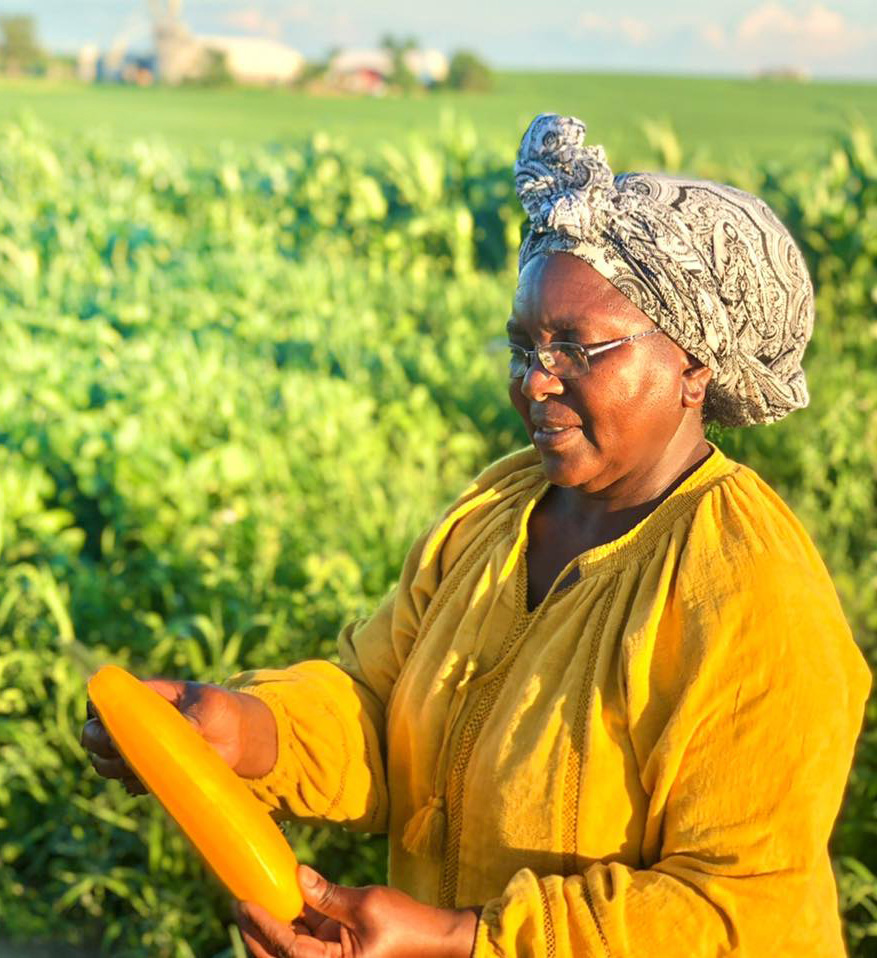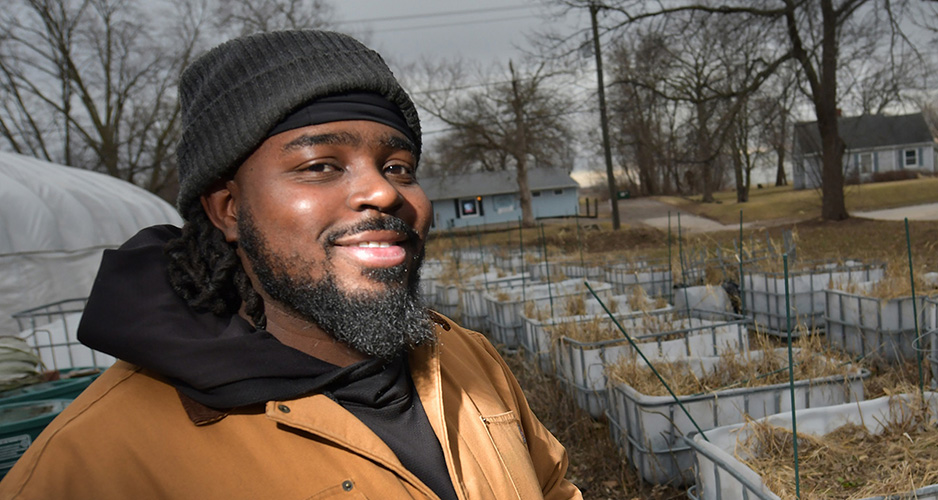Few African Americans till the land in central Illinois, but the state is trying to boost those numbers.
Minorities have made real strides in the American workplace over the past 100 years. It’s no longer uncommon to find people of color serving as policemen, teachers or doctors. But one segment of the U.S. economy still lags behind when it comes to diversity: agriculture.
Indeed, there were 920,000 black farmers in America in 1920, according to the U.S. Department of Agriculture, making up 14% of the total number of people engaged in farming at that time. A century later, African Americans make up just 1.4% of the country’s 3.4 million producers, according to USDA data. In Illinois, the department’s 2017 Ag Census recorded only 188 African American farmers, compared to 890 black producers that were active in the state as America entered the Roaring Twenties.
In an effort to support minority farmers in Illinois, a bill signed into law last year established an Agriculture Equity Commission, which provides funding for land grants of up to 100 acres for eligible individuals. The legislation also established a Farm Conservation Corps to offer training to young Illinois residents interested in agricultural careers.
“When you take a look at what black farmers have gone through throughout history, when you take a look at the issue that they had around land access and even access to federal programs, you will see that there has been a big disparity there,” said state Rep. Sonya Harper of Chicago, the bill’s primary sponsor.
Demarkius Medley, 37, who lives in Galesburg with his wife and four children, is bucking the trend, hoping to succeed as an African American farmer despite growing up in the inner city with next to no experience in the field. Indeed, Medley moved to Knox County from Chicago some 20 years ago, but didn’t get the farming bug until 2011, while recovering from back surgery.
Off work and wanting to stay active, he volunteered to work in a community garden before joining a Knox College trip to Milwaukee to observe Will Allen’s Growing Power program, at the time one of the nation’s most successful urban farms. The latter included an aquaponics program, which involves raising fish and plants without soil. Plants are fed the aquatic animals’ waste while the vegetables clean the water that goes back to the fish.
“I thought this was amazing — setting up a farm in the middle of the ‘hood,” said Medley, who returned to Galesburg with aspirations of setting up his own aquaponics facility. In 2017, he started a small farm with his brother. That included the purchase of a four-acre plot in Galesburg to facilitate the aquaponics project.
Medley soon got a crash course in zoning laws and building permits, to which he hadn’t given much thought before. “I needed a site plan and drawings and I wasn’t getting a lot of help from the city or health department,” he said.
While experimenting with aquaponics, Medley decided to try his hand at raising industrial hemp, a crop that would allow him to continue working a day job. But farming, he would find out, is not without its challenges. He recalled an incident in 2019 when he was tending to his small crop early in the morning, while it was still dark.
“I was out in the field before I had to go to work with my car’s headlights shining on the plants. The police arrived and told me they got a call that someone was trespassing,” recalled Medley. “They asked if I had any way to prove I was the owner.
“Then about five other police cars pull up. The officers are all around me. My heart’s racing now. The police start walking around in the field with flashlights. I don’t know what’s going on,” he said. Ultimately, he produced a license and the problems were avoided, but Medley was moved to post his experience online, where he referenced the book by Leah Penniman, Farming While Black.
“I got a big response online to my ‘farming while black’ post but I wasn’t trying to bash the police. I think it was all a mistake,” he said. “We’ve got it all worked out now.”
In fact, a photo of Medley and his family now graces the cover of the latest issue of the Galesburg visitors’ guide.
One Galesburg official who’s been in Medley’s corner from the start is Mayor Peter Schwartzman, the Knox College professor who organized that initial trip to the Milwaukee urban farm.
“We go back pretty far,” said Schwartzman of his relationship with Medley, acknowledging that while minority farmers are a scarce presence in Galesburg and around the state, urban farms may represent a new pathway for those desiring to work the soil.
“I’ve seen a number of urban farm projects around the country,” said Schwartzman, citing Detroit as an example of a city where residents, many of them African Americans, are reclaiming city land for farming.
Schwartzman ticked off a half-dozen potential crops for the urban farmer such as microgreens, fruit trees, compost, vermiculture (worm castings sometimes referred to as black gold), herbs, wheatgrass and chickens. Galesburg recently created an urban agriculture pilot program for residents, he said.
Galesburg’s mayor credited Medley for his fortitude. “He has that focus. Demarkius is a good example of someone who’s worked through the system and laid a pathway for others.”

Another pioneer is Janet Zintambila, who has been farming several acres in Normal for over a decade. A native Kenyan, she grew up on a farm where she recalls her mother growing coffee.
She first came to the United States to attend college in 1979. After graduating from Iowa Wesleyan University, she went on to earn her master’s degree in counseling at Western Illinois University in Macomb.
When Zintambila, 66, is not working with Down Syndrome residents at a Normal assisted living facility, she finds refuge and joy in the field.
“Farming is my passion,” she said. “I lease the acres I work on. My ultimate goal is to buy some land.”
As for crops, Zintambila favors white corn, a plant she knows from her native Africa as the chief ingredient in ugali, a polenta-like dish served with meat or vegetables. She also tends a vegetable garden where she raises kale, collards, onions and sweet potatoes.
There is a big difference between farms in her homeland and those in central Illinois. “In Kenya, there are smaller farms, family farms that people grow crops to live on,” she said, noting that the country’s climate supports two growing seasons. “There you can farm all year.
“Here, the farms are quite big and you need machinery. The land is expensive, for sure. It would be nice if more people could own land,” said Zintambila, who credits area farmers — among them Rader Family Farms and Wettstein Organic Farms — with helping her partake in her passion.
Her CHJ Umoja Gardens (facebook.com/ChjUmojaGardens/) sells its produce at farmers markets, including in the Peoria area.
“People need to support the farmers,” said Zintambila. “They show such willingness to help others.”





